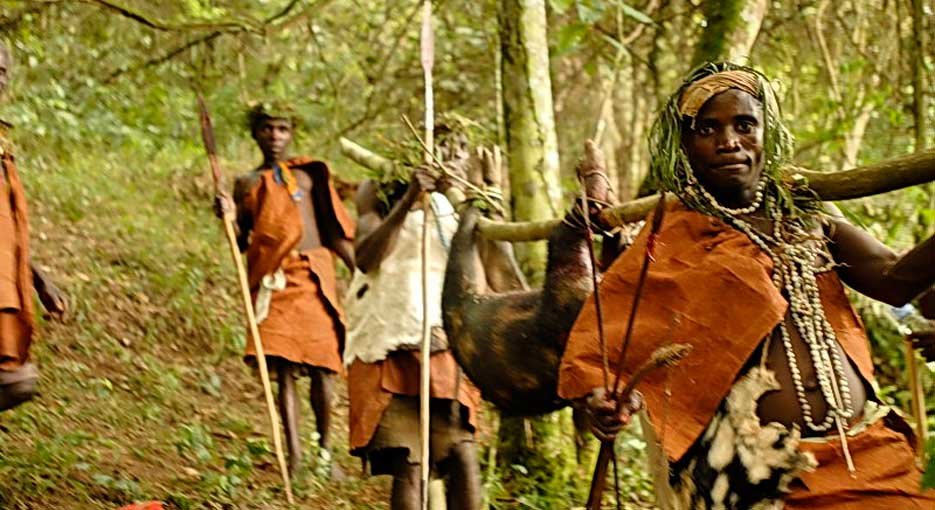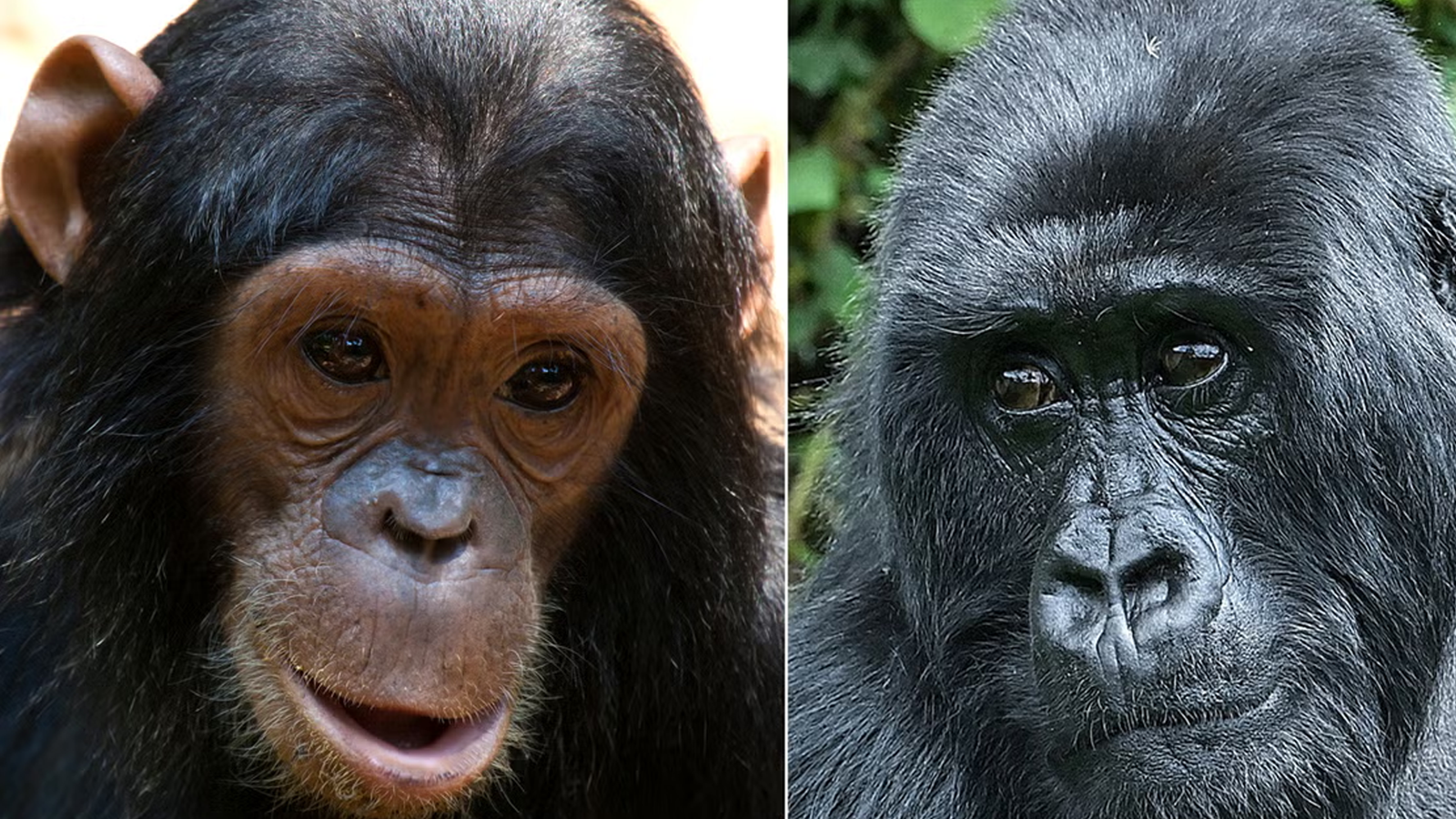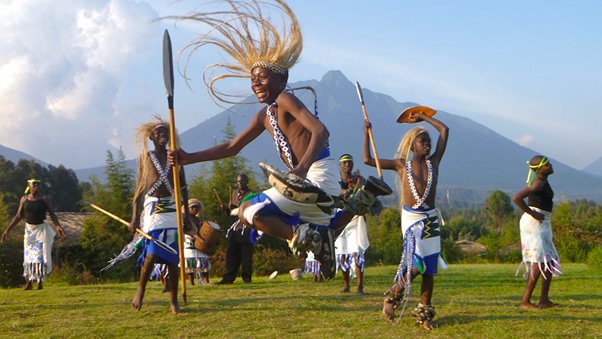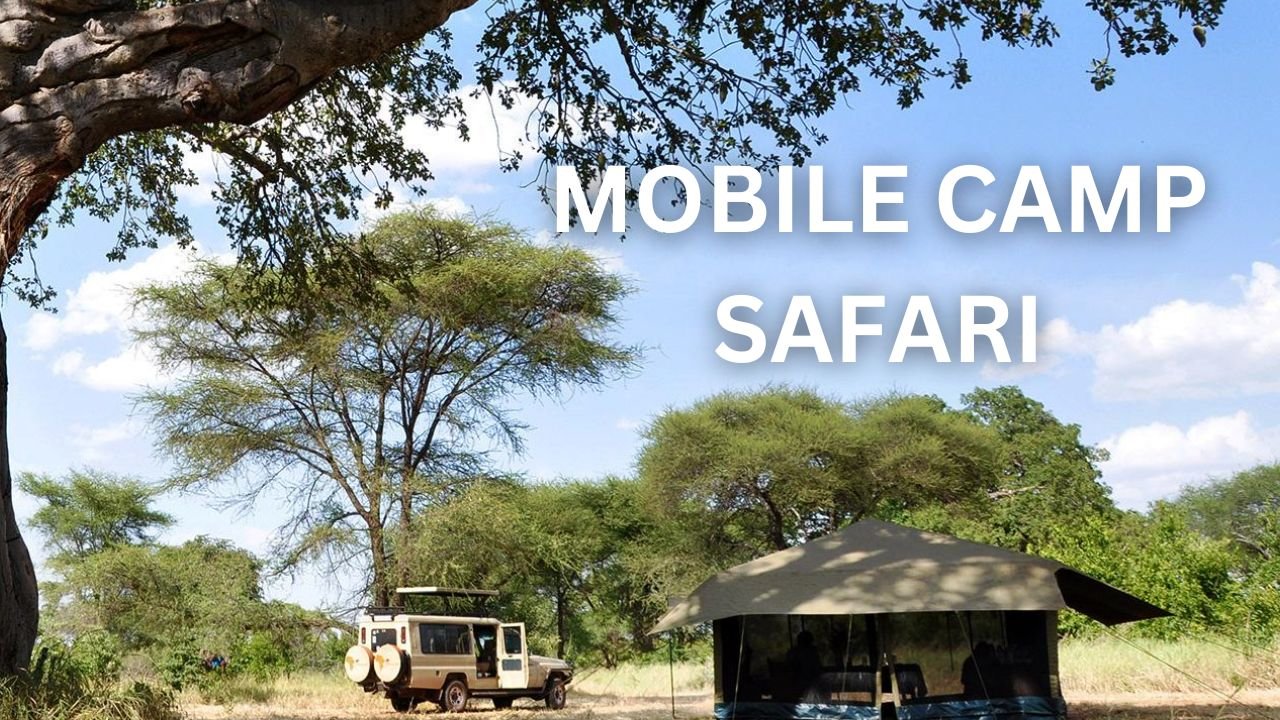By actively involving local communities in conservation efforts, these patrols not only protect the park’s resources but also foster a sense of ownership and responsibility among community members.
Additionally, capacity building and skills training programs provide the necessary tools for individuals to actively participate in conservation and pursue sustainable livelihoods.
Moreover, women’s empowerment initiatives play a vital r

ole in promoting gender equality, increasing women’s participation in decision-making processes, and fostering inclusive and sustainable development.
Together, these community-driven initiatives pave the way for a harmonious coexistence between humans and nature, ensuring the preservation of Mgahinga National Park for generations to come.
Community-based Forest patrols: Community tours in Mgahinga NP
Community-based Forest patrols can be an effective strategy for protecting the natural resources of Mgahinga National Park while actively involving local communities in conservation efforts. Here’s how community-based forest patrols can be implemented:
Training and capacity building: Provide training to community members on forest conservation, wildlife monitoring, and effective patrolling techniques.
This can include educating them about the park’s rules and regulations, identifying and reporting illegal activities, and basic first aid skills. Training programs should also emphasize the importance of community involvement in safeguarding the park’s resources.
Community-led patrols: Organize regular forest patrols led by community members who are familiar with the local terrain and have a vested interest in protecting the park.
These patrols can cover designated areas within the park and its periphery to deter illegal activities such as poaching, illegal logging, and encroachment. Local guides or park rangers can accompany community patrols to provide technical guidance and support.
Monitoring and reporting:
Encourage community members to monitor and document any signs of illegal activities, including wildlife poaching, tree felling, or habitat destruction.
Establish a system for reporting incidents promptly to park authorities, allowing for timely response and intervention. This can be facilitated through communication channels such as mobile phones, radios, or community-based reporting centres.
Collaboration with park authorities: Community tours in Mgahinga NP
Foster collaboration and information sharing between community patrols and park management authorities. Regular meetings and dialogue can help establish a strong working relationship, enabling effective coordination, sharing of intelligence, and joint planning of patrol activities.
This collaboration ensures that community efforts align with the overall park management objectives.
Community awareness and engagement:
Conduct awareness campaigns within local communities about the importance of conservation, the role of forest patrols, and the benefits of protecting the park’s resources.
Engage community members in discussions, workshops, and educational programs that highlight the significance of their involvement in forest patrols. This fosters a sense of ownership and responsibility among community members towards protecting their natural heritage.
Incentives and rewards:
Recognize and incentivize community members who actively participate in forest patrols and contribute to the protection of the park. This can include providing financial incentives, certificates of appreciation, or other forms of recognition to acknowledge their efforts and motivate continued engagement.
Sustainable livelihood alternatives:Community tours in Mgahinga NP
Support the development of sustainable livelihood alternatives for local communities around Mgahinga national park to reduce dependency on the park’s resources. This can include initiatives such as agroforestry, eco-tourism, or micro-enterprises that generate income while minimizing negative impacts on the park’s ecosystem.
By involving local communities in forest patrols, Mgahinga National Park can benefit from increased surveillance, enhanced community support, and strengthened ties between communities and park management. Community-based Forest patrols empower local residents to actively participate in the conservation of the park’s resources, contributing to its long-term sustainability.
Capacity building and skills training:
Capacity building and skills training programs are essential components of community development and empowerment in Mgahinga National Park.
By providing local communities with the necessary knowledge and skills, these initiatives enable individuals to actively participate in conservation efforts and pursue sustainable livelihoods. Here are some ways capacity building and skills training can be implemented:
Conservation education:
Offer training programs and workshops that focus on conservation principles, environmental awareness, and the importance of protecting the park’s resources. These programs can be designed for various target groups, including community members, youth, teachers, and local leaders, to foster a deeper understanding of conservation issues and promote a sense of responsibility towards the environment.
Ecotourism and hospitality training:
Provide training in ecotourism practices, customer service, and hospitality skills to local community members interested in engaging with the tourism industry.
This can include tour guiding techniques, interpretation of natural and cultural heritage, sustainable tourism practices, and language skills to effectively communicate with visitors.
Sustainable agriculture and agroforestry:
Conduct training sessions on sustainable agricultural practices, organic farming techniques, agroforestry, and permaculture. These programs can equip local farmers with the skills to optimize agricultural productivity while minimizing negative environmental impacts, such as soil erosion, chemical usage, and deforestation.
Entrepreneurship and business management:
Offer entrepreneurship training and business management skills to community members interested in starting their own ventures. This can include topics like business planning, financial management, marketing strategies, and customer relations.
Empowering individuals with entrepreneurial skills enhance their capacity to establish and manage sustainable businesses, such as eco-lodges, handicraft production, or community-based tour operations.
First aid and safety training:
Conduct training programs on basic first aid and safety protocols to enhance the safety and well-being of community members engaging in various activities within the park. This includes knowledge of emergency response, injury prevention, and techniques for providing first aid in case of accidents or wildlife encounters.
Leadership and community mobilization:
Provide leadership training to individuals interested in taking on leadership roles within their communities. This includes skills in community mobilization, facilitation, conflict resolution, and decision-making. Building strong local leaders who can effectively engage community members in conservation initiatives is vital for long-term sustainability.
Vocational skills development:
Identify and address the specific vocational skills needs of the community, such as carpentry, masonry, mechanics, or crafts production. These training programs help individuals acquire marketable skills that can lead to income-generating opportunities and reduce reliance on the park’s resources.
It’s important to ensure that capacity building and skills training programs are developed in collaboration with community members, taking into account their needs, aspirations, and cultural context.
These initiatives not only enhance the capabilities of individuals but also foster community cohesion, empowerment, and active participation in the sustainable development of Mgahinga National Park and its surrounding areas.
Women’s empowerment initiatives:
Women’s empowerment initiatives are essential for promoting gender equality, enhancing the participation of women in decision-making processes, and fostering sustainable development in Mgahinga National Park. Here are some ways in which women’s empowerment initiatives can be implemented:
Skills training and capacity building:
Provide training programs and workshops that focus on enhancing women’s skills and knowledge in various areas. This can include vocational training, entrepreneurship development, financial management, and leadership skills. These initiatives equip women with the necessary tools to engage in income-generating activities, establish their own businesses, and contribute to the local economy.
Women-led cooperatives:
Support the formation and strengthening of women-led cooperatives in areas such as handicraft production, agriculture, or eco-tourism. Cooperatives can provide women with a platform to collectively market and sell their products, negotiate fair prices, and access resources and funding.
This promotes economic empowerment and allows women to have a stronger voice in decision-making processes.
Access to finance and micro credit:
Facilitate access to financial services, including microcredit schemes, for women entrepreneurs. By providing access to capital and financial resources, women can invest in their businesses, expand their ventures, and improve their livelihoods. Financial inclusion is crucial for enabling women to overcome economic barriers and seize opportunities.
Women’s leadership and representation:
Promote women’s leadership and representation in local community organizations, conservation committees, and decision-making bodies related to park management.
Encourage and support women’s participation in leadership roles to ensure their perspectives and voices are heard, and their contributions are valued in shaping policies and strategies for the park’s sustainable development.
Gender-sensitive training and awareness:
Integrate gender sensitivity into training programs, awareness campaigns, and educational initiatives related to conservation and environmental management.
This involves recognizing and addressing the specific challenges faced by women in accessing resources, participating in decision-making, and benefiting from conservation initiatives. It also promotes gender equality, inclusivity, and respect within the community.
Maternal and child health programs:
Implement programs that focus on improving maternal and child health, including access to healthcare facilities, reproductive health services, and nutrition education. Such initiatives contribute to the well-being of women and their families, ensuring their overall welfare and resilience.
Safe spaces and support networks: Community tours in Mgahinga national park
Establish safe spaces and support networks for women to share experiences, seek guidance, and access mentorship opportunities. These spaces can facilitate the exchange of knowledge, promote solidarity, and provide a supportive environment for women to discuss and address challenges they face.
It’s important to engage with local communities and women’s organizations to understand their specific needs and aspirations.
Collaborative efforts and partnerships with community leaders, NGOs, and government agencies are crucial for the successful implementation of women’s empowerment initiatives in Mount Mgahinga National Park.
By empowering women, the park can benefit from their unique perspectives, contributions, and leadership, leading to more inclusive and sustainable conservation efforts.



